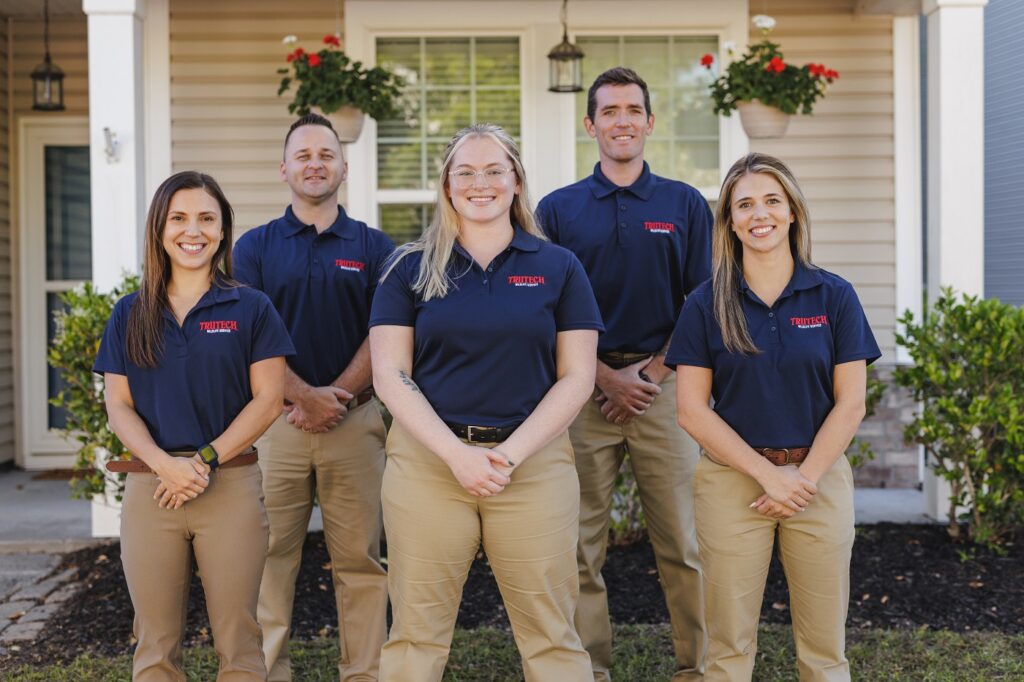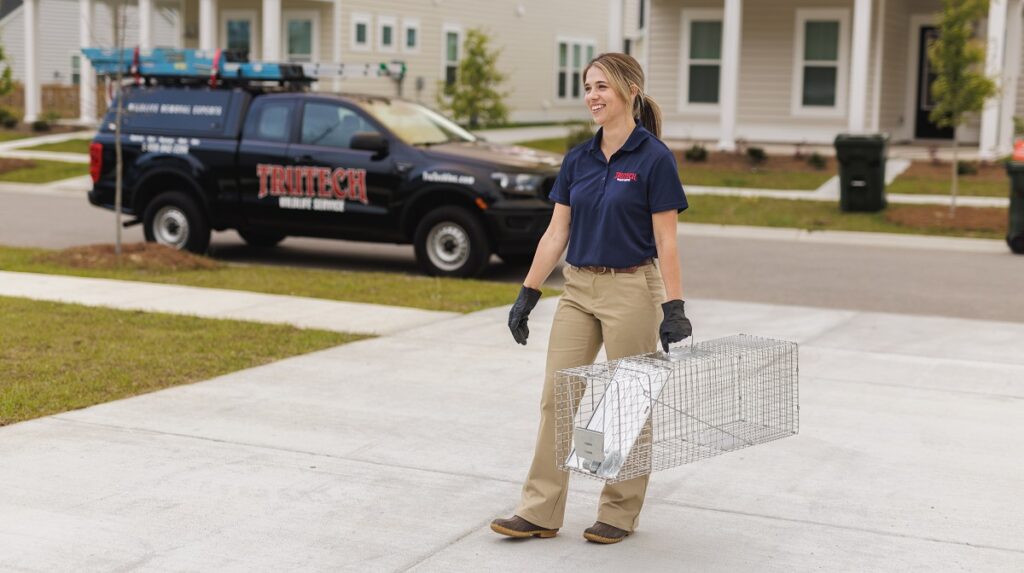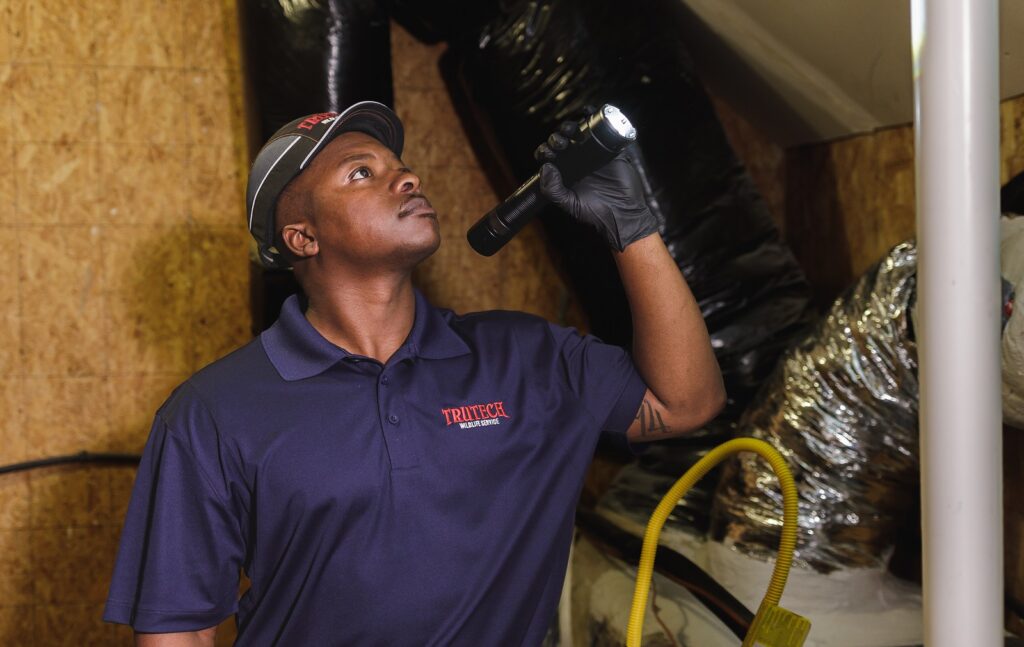If you have found a dead animal inside the house or on your property, you need to quickly and safely take care of it. Properly disposing of the animal carcass is essential for public health, environmental protection, and legal compliance.
I Found a Dead Animal, Now What?
Don’t Touch It!
Do not touch a carcass without proper PPE (personal protection equipment). Keep your pets, children, and anyone else away from the area.
Dead animals can harbor pathogens, parasites, and bacteria that pose serious health risks to humans and pets. Rabies, salmonella, E. coli, and various other zoonotic diseases can persist in carcasses, even after the animal has died. Furthermore, ticks, fleas, and other parasites may still be present and can transfer to you or your pets. Always assume the worst and maintain a safe distance.
Where is the Dead Animal Carcass?
Before you do anything, take a moment to assess the situation from a safe distance.
- What kind of animal is it?
- Is it a small squirrel, a medium-sized raccoon, or something larger like a deer?
- Where is it located – in your yard, on the sidewalk, or near a public thoroughfare?
Understanding these factors will help you determine the appropriate next steps and whether you need to involve local authorities immediately. A small bird might be handled differently from a potentially rabid fox.
SC Code Section 44-29-30 states that an owner may bury or bur a dead animal or poultry immediately. Animals must be no less than 3 feet and poulty no les than 1 foot.
Regulations are in place to prevent the spread of disease, deter scavengers that could bring further issues, and protect our ecosystems from contamination. These rules ensure responsible and sanitary disposal, safeguarding both human and animal populations. They’re a testament to our collective commitment to public safety.
Approved Methods for Carcass Disposal in South Carolina
- Certified solid waste disposal facility
- Incineration
- Rendering with a contract
- Composting
- Burial
It is unlawful to dispose of a carcass along any public road or right-of-way
Who Should I Call for a Dead Animal?
Dead animal on road
If you wish to report a dead animal (domesticated or wildlife) on the side of the road or on any public property, contact your municipal or county animal control.
Sick, injured, or dead wildlife
If you wish to report wildlife that are sick or dead of unknown causes, please email the Wildlife Health Team at [email protected]. If you need immediate assistance please call Wildlife Alert Hotline at 1-888-404-FWCC (3922) or use the “FWC Wildlife Alert” app.
Dead animal in house
If you believe an animal like a raccoon, squirrel, bat, opossum, rodent or any type of wildlife is dead inside your house, call Trutech Wildlife Service.
If your pet has died, please contact your veterinary office.
How to Dipose of Small Carcasses in Your Backyard
Bury a Small Carcass
For very small animals like birds, squirrels, or mice that you find on your private property, you can dispose of the animal on your property by burying it.
- Dig a hole at least 3 feet deep to prevent other animals from digging it up.
- Choose a location away from water sources (wells, streams, ponds) and utility lines.
- (Recommended) Sprinkle a layer of lime over the carcass before covering it with soil to aid decomposition and deter scavengers.
Will the Sanitation Department Take Care of It?
Some municipalities allow for the disposal of very small, non-diseased animals (again, like a mouse or small bird) in household trash, provided they are properly prepared.
This typically involves double-bagging the carcass in sturdy, leak-proof plastic bags to contain odors and prevent leakage. Place it in your outdoor trash bin just before collection day. This method is generally not suitable for animals larger than a small rabbit or if there’s any suspicion of disease.
Before attempting this, check with your local waste management or health department for their specific guidelines. Don’t assume; verify.
Professional Dead Animal Removal Near You
Finding a dead deer, coyote, fox, or even a large raccoon on your property means it’s time to call in the professionals. These animals pose significant health risks, and their disposal requires specialized equipment and knowledge. Your local animal control, state wildlife agency, or sometimes even a private waste removal service specializing in animal carcasses will be the one who needs to be contacted.




